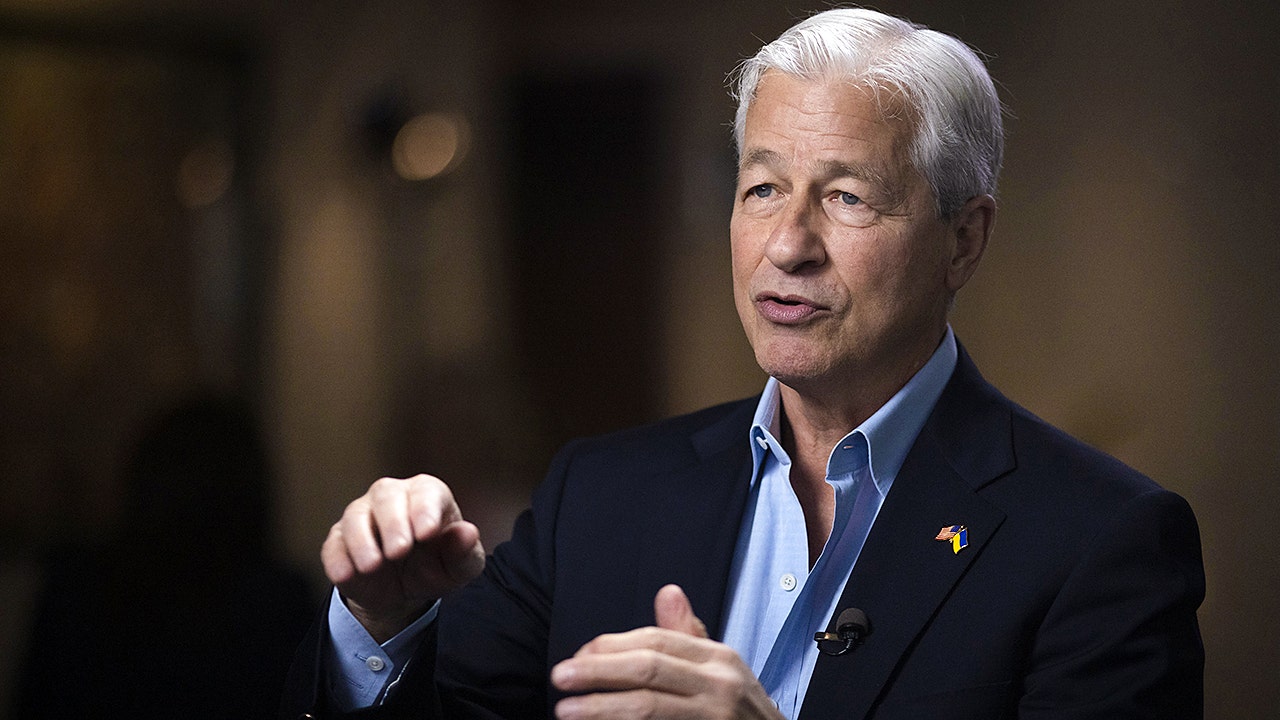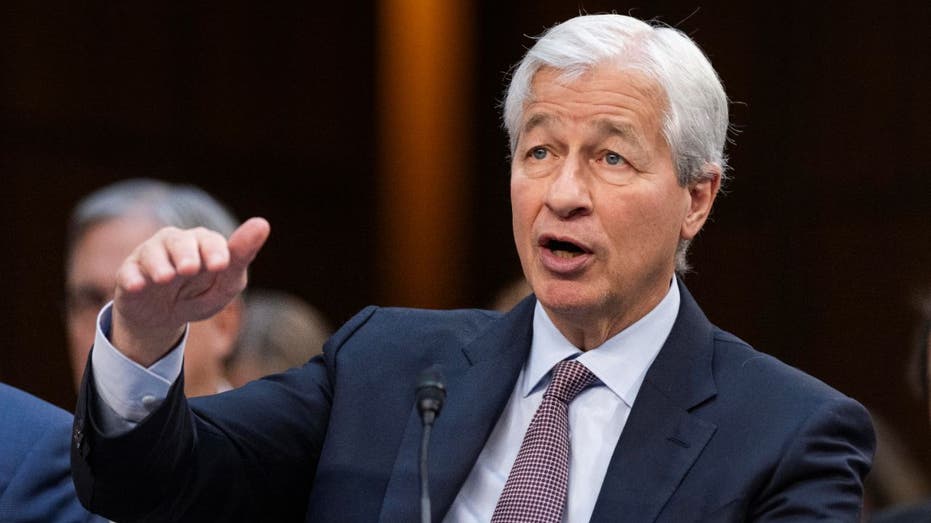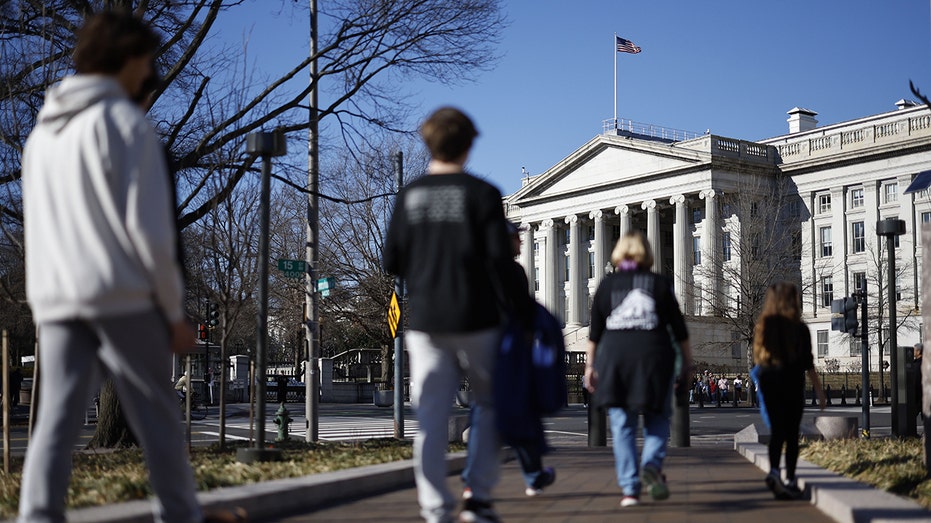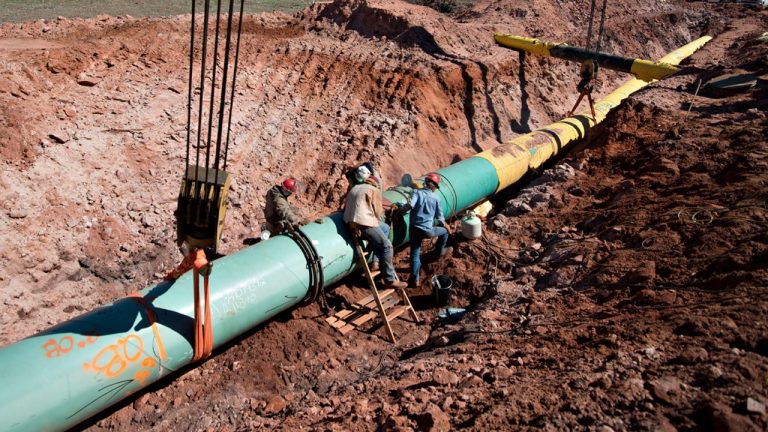
JPMorgan Chase CEO Jamie Dimon on the Federal Reserve’s rate trajectory, 2024 economy, looming bank regulations and artificial intelligence.
JPMorgan Chase CEO Jamie Dimon on Friday warned that several headwinds, including chronic inflation, Federal Reserve policy and ongoing wars, pose major threats to the U.S. economy.
“Many economic indicators continue to be favorable,” the chief executive of America’s largest bank said in a release announcing first-quarter earning results. “However, looking ahead, we remain alert to a number of significant uncertain forces.”
Those risks include the “unsettling” global landscape, including “terrible wars and violence” that cause suffering, as well as worsening geopolitical tensions.
Dimon also sounded the alarm about a “large number of persistent inflationary pressures” that may continue. While inflation has fallen considerably from a peak of 9.1%, progress has largely flatlined since the summer.
WHY ARE GROCERIES STILL SO EXPENSIVE?

JPMorgan Chase CEO Jamie Dimon attends a hearing on oversight of Wall Street firms before the Senate Committee on Banking, Housing, and Urban Affairs in Washington, D.C., on Dec. 6, 2023. (Aaron Schwartz/Xinhua via / Getty Images)
The latest consumer price index data, released Wednesday morning, further fueled concerns on Wall Street about the state of inflation.
The report showed that inflation rose 3.5% in March, the highest level since September 2023, amid a resurgence in gasoline and rent costs. It marked the third straight month that inflation came in hotter than expected, underscoring the difficulty of taming price growth.
| Ticker | Security | Last | Change | Change % |
|---|---|---|---|---|
| JPM | JPMORGAN CHASE & CO. | 184.14 | -11.10 | -5.69% |
Other parts of the report also pointed to stubborn price pressures within the economy. Core prices, which exclude the more volatile measurements of food and energy, climbed 0.4%, as they did in January and February, for an annual gain of 3.8%. Those figures are also higher than estimates.
US ECONOMY ADDS 303K JOBS IN MARCH, MUCH STRONGER THAN EXPECTED

Pedestrians near the U.S. Treasury building in Washington, D.C., on Dec. 30, 2022. (Ting Shen/Bloomberg via / Getty Images)
Finally, Dimon expressed concerns over the Federal Reserve’s campaign to shrink the assets it is holding on its $7.5 trillion balance sheet, the long-term effects of which he said are still unclear.
“We have never truly experienced the full effect of quantitative tightening on this scale,” he said.
Dimon’s comments come as Federal Reserve policymakers weigh when to start cutting interest rates amid concerns that progress on inflation has stalled. Investors have steadily dialed back their expectations as central bank officials signal they are in no rush to cut, and that incoming economic data will guide their decision.
Hiking interest rates creates higher rates on consumer and business loans, which then slows the economy by forcing employers to cut back on spending. Higher rates have helped push the average rate on a 30-year mortgage above 8% for the first time in decades. Borrowing costs for everything from home equity lines of credit, auto loans and credit cards have also spiked.
| Ticker | Security | Last | Change | Change % |
|---|---|---|---|---|
| I:DJI | DOW JONES AVERAGES | 38077.34 | -381.74 | -0.99% |
| I:COMP | NASDAQ COMPOSITE INDEX | 16212.326255 | -229.87 | -1.40% |
| SP500 | S&P 500 | 5141.29 | -57.77 | -1.11% |
Yet the rapid rise in rates has not stopped consumers from spending or businesses from hiring, buoying hopes on Wall Street that the U.S. economy can avert a recession. Additionally, the S&P 500, the broadest measure of the U.S. stock market, is hovering at an all-time high.
CLICK HERE TO READ MORE ON FOX BUSINESS
Dimon, however, sounded a more skeptical note about the odds of a soft landing earlier this week.
“These markets seem to be pricing in at a 70% to 80% chance of a soft landing – modest growth along with declining inflation and interest rates,” he wrote Monday in his annual letter to shareholders. “I believe the odds are a lot lower than that.”







